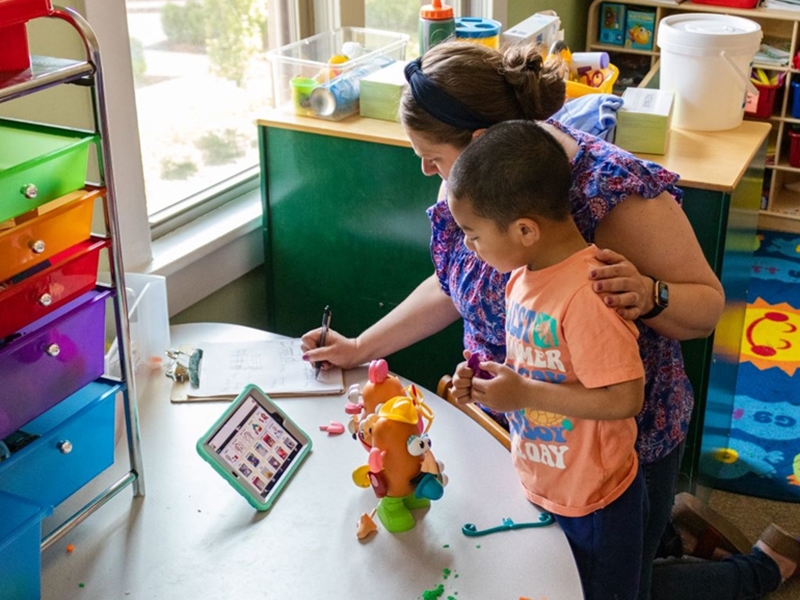
Two U of A professors are using artificial intelligence to improve communication tools for people with limited speech.
Elizabeth Lorah and Christine Holyfield, faculty members in the College of Education and Health Professions, created an interdisciplinary research lab in 2021. Lorah is an associate professor in special education and a board-certified behavioral analyst. Holyfield is an associate professor in communication sciences and disorders and a speech-language pathologist.
The Augmentative and Alternative Communication Research Lab combines their respective fields to promote communication from people with developmental and intellectual disabilities like autism and Down syndrome.
Augmentative and alternative communication devices allow someone with limited speech to communicate by selecting photos with words on a tablet. In the clinical research preschool, Holyfield and Lorah teach children on the autism spectrum how to use the tablets by playing with various objects and integrating the tablet and alternative speech within play. Students in the clinic were able to use the AI-enabled device prototypes to make choices and participate in circle time activities.
"The current systems are cumbersome and difficult to personalize," Lorah said. "We're hoping that by using AI technologies, we can speed up the systems and make them easier to customize, focusing it on user needs."
Holyfield added that AI can improve communication by analyzing contextual information to speed up the word selection process so individuals using an AAC device can participate in conversations at a faster pace.
"AI is making mainstream technologies we use every day better all the time," Holyfield said. "With some deliberate work, AAC technologies used by people who have limited speech can also be made better by AI. However, research is needed to ensure that it is done in a way that is guided by the needs, interests and priorities of the people who use AAC every day to communicate."
Lorah said the lab has been successful so far despite the initial challenges presented by COVID-19 restrictions. They received a Track H Convergence Accelerator grant — award number 2236352 — from the National Science Foundation worth $749,960 in January. Half of the funds go to a team of computer scientists from Temple University to develop new AAC technologies using AI. The research team will gather data on how users respond to different prototypes to optimize alternative communication.
"Individuals with complex communication needs are restricted in their participation in life, including in educational, vocational and social activities," Lorah explained. "AAC can help people participate in all of those aspects of life. AAC can improve individuals' interaction with family, friends and other communication partners in educational and social contexts."
Topics
Contacts
Maggie Nicole Green, COEHP communications intern
College of Education and Health Professions
479-575-3138, mng007@uark.edu
Shannon Magsam, director of communications
College of Education and Health Professions
479-575-3138, magsam@uark.edu